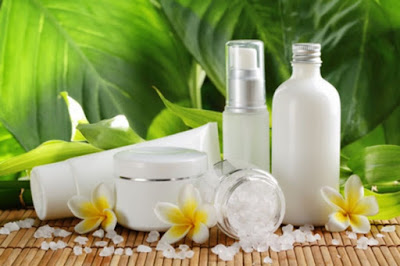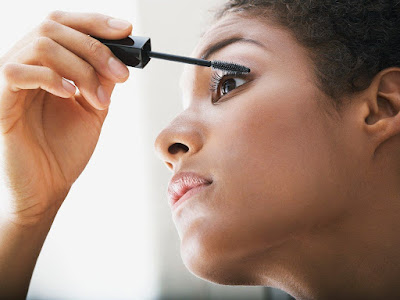You Need to Know about Eye Problems Associated with Eye Makeup
Cosmetics and allergies to the eyes
Do your eyes and eyelids tend to itch, sting, or cry?
Difficult to know if it is an allergy to pollen, an irritation related to the
wearing of contact lenses, a beginning of conjunctivitis, but also, maybe you
are subject to an allergy to cosmetics? So what are the substances that can
cause an allergy and how to avoid them?
What is an allergy to cosmetics?
Allergic reactions to cosmetics are most often due to one
particular ingredient. It can be difficult to identify because of the large
number of components involved in skincare or make-up formulas, and the
complexity of their names.
It should be noted that the list of ingredients must be
printed on the bottle or package, in descending order of the volumecontained in
the solution. Thus, you read at the beginning of the list, the main
constituents, "Aqua", the water, is very often the first because it
composes 50 to 80% of the cosmetic products. The content of end-of-list
ingredients is often very low, provided they are first observed by doctors
during allergic reactions.
The products likely to cause an allergy are rather
preservatives, masking agents, additives, cosmetic dyes ... but this cannot be
generalized because they are the subject of tests and a rigorous
regulation.
For example, parabens are subject to discussion. The scientific
committee of the European Union limits the concentration of parabens, without
prohibiting them.
Often replaced by other preservatives, experience shows that
they can also be allergenic.
All these products are extensively tested before being marketed,
so each of us can only know its sensitivity, or even its allergy to a
component, after a reaction.
 |
| Cosmetics and eye allergies |
How to recognize an allergic reaction and what should you do?
If, with the application of cream or makeup, you notice
redness or itching on your skin, you are probably having an allergic reaction.
The eyelid area is more sensitive because of the thinness of the skin, and the
eyes are directly exposed and can sting you and cry.
To begin, immediately stop applying the offending product.
If symptoms persist, do not hesitate to consult your doctor
with the product and its composition. It will make a diagnosis and help you to
define your situations vigilantly, especially which component you are likely
sensitive to or allergic to.
In addition, take care of the conservation of your products:
respect the expiry dates, be sure to keep your bottles closed, and wash and dry
your hands before each use.
BIO cosmetics: what is it?
 |
| BIO cosmetics and Eye Problem |
Since 1998, the association “Nature and Progress” made up of
agricultural producers, laboratories in cosmetics and consumers, has extended
this quality label from food to cosmetics.
The important and rigorous specifications are controlled by
the independent organization Visagro-Certipaq.
It requires, for example, that 100% of the plants used in
the product be organic plants, and therefore without pesticides, and that this
product must comply with banned and authorized product lists. Globally,
synthetic ingredients must give way to ingredients of natural origin: plant or
animal (without slaughter).
"Nature et Progrès" is probably the most demanding
label, other labels exist in France like Cosmebio and Ecocert .
To obtain the Cosmebio label, the product must comply with these specifications:
- 95% minimum of natural or natural ingredients
- Minimum 95% of vegetable ingredients from Organic Farming
- Minimum 10% of all ingredients are from Organic Farming
For the Ecocert label, the charter is established at:
- 95% minimum of natural or natural ingredients.
- Minimum 50% of vegetable ingredients are from Organic Farming
- Minimum 5% of all ingredients are from Organic Farming
To our knowledge, no study proves that organic products are
less allergenic, but knowing their existence may be useful to some people with
allergies.
On the other hand, the defenders of respect for the
environment encourage the use of natural products. Indeed, some synthetic
components cannot be treated before being released into the rivers...
So maybe we can conclude that if it's better for nature,
it's better for humans.











0 comments:
Post a Comment